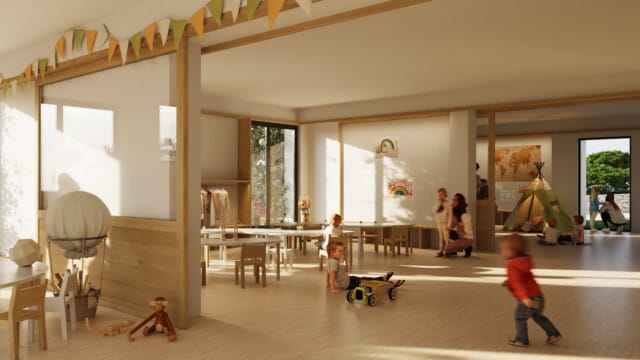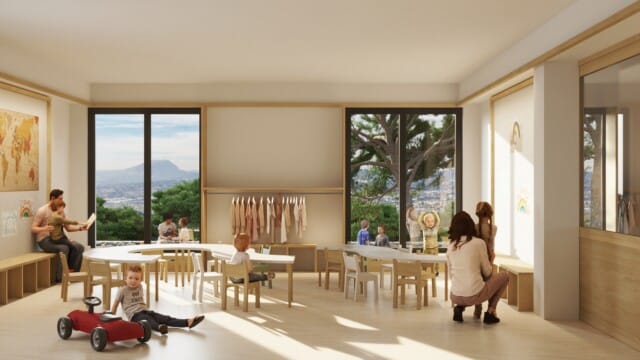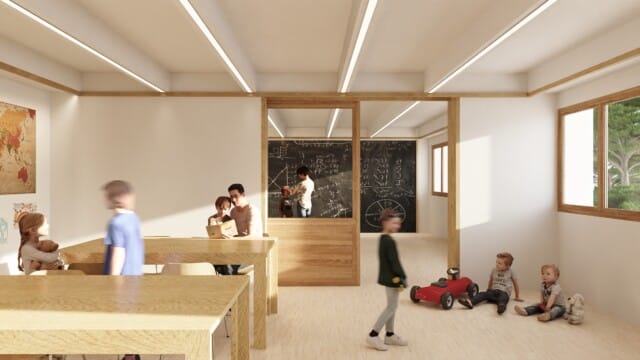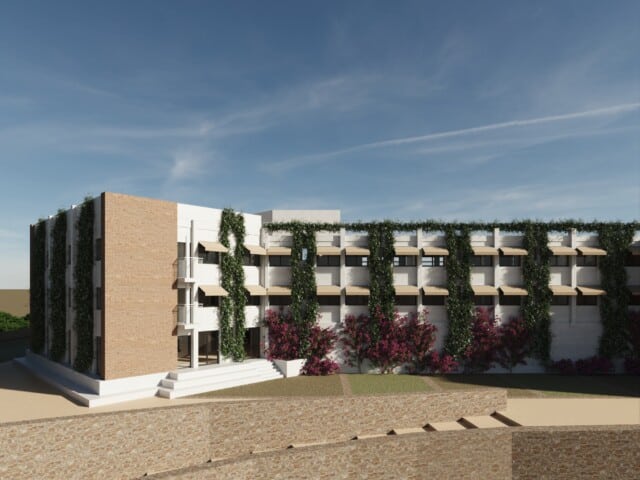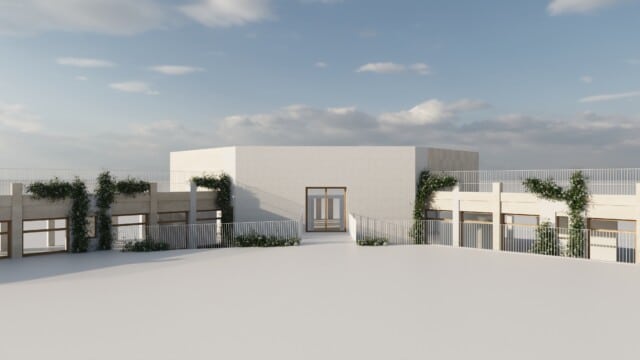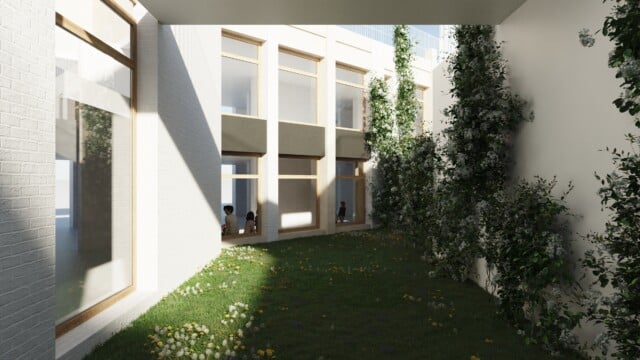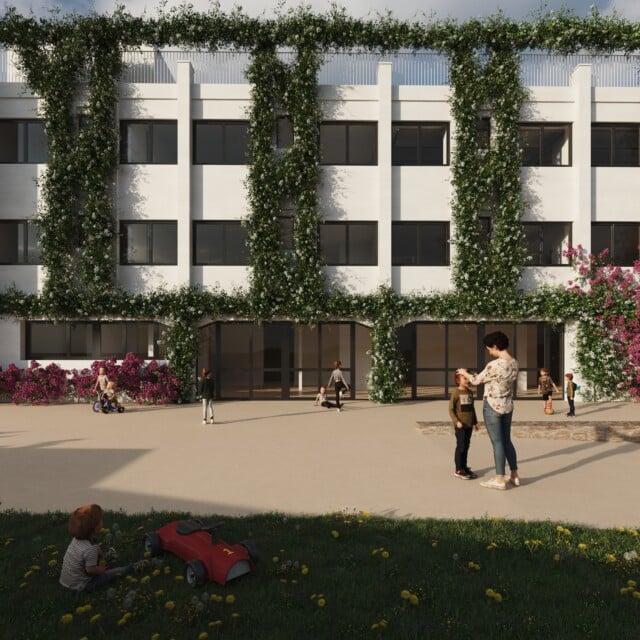We are Montiba,
the new educational
approach in Barcelona.
We are Montiba,
the new educational
approach in Barcelona.
After thinking about the need for new education in Barcelona, we bring, with great excitement, the pedagogy of Colegio Madrid — a method with a proven track record and experience — to an ideal environment for education: Tibidabo. We are talking about a comprehensive, secular, co-educational proposal that helps each child discover who they are.
Contact us
We cover all educational stages: from preschool to high school, with a humanistic, critical, creative, and respectful approach.
- Demanding and Creative Approach
- Multidisciplinarity
- Personalized Integral Development
- Multilingual Education
Educational Stages
A unique method to educate
well-rounded individuals.

We seek the comprehensive development of the individual, understanding that there are as many models of success as there are children. Through a balance between humanism, science and art, as well as sports and continuous contact with cultural references, experimentation and critical analysis, we aim to create individuals capable of thinking for themselves, connecting ideas, building new ones, and actively participating in the world. For us, education is much more than transmitting information; it is about providing students with the gift of culture which they can use in all aspects of their lives.
Know our method
Teaching critical thinking
When you teach life
as a whole, you teach
that all subjects are equally important.
We give equal importance to the humanities, sciences, and arts. Our goal is to teach how interconnected all subjects are.
Memorize well.
Understand better.
We aim for students to contribute, have a critical attitude, understand and seek information from reliable sources. We value memorization as it is a good support tool for learning, but we do not want students who just repeat information like parrots.
Fewer textbooks.
More planning, listening, and research.
We do not use textbooks. Students create their own books day by day, based on their own notes, which involves organization, planning, and active listening.
Growing together
is growing better.
We teach students to live with others. We work on respecting peers, adults, the environment, and oneself because we want each individual to recognize their responsibility as an integral part of humanity. We prioritize emotional stability; students must feel safe and calm in order to learn.
We are rigorous
Learning to read well
is the key to learning
with comprehension.
We teach reading at the age of six, as studies in cognitive neuroscience contend that the brain is ready for reading and writing. Our goal is for students to understand, not just to learn to read mechanically, because reading is interdisciplinary. If they understand what they read, they will understand the concepts in other subjects better.
Mathematics can go
at each person's pace.
In the early stages, we prioritize manipulation and representation before advancing to abstraction. We focus primarily on problem-solving and the development of logic, which will help them work, among other aspects, on computational language. In this way, we respect each individual’s pace, preventing them from getting lost along the way, and we can demand more from those who need it.
We speak their language.
We personalize the language program, respecting the family’s language and promoting multilingualism. We introduce English from preschool with daily classes in small groups (thirteen students per teacher), and French in the first year of high school.
What is most beautiful about education
is teaching the ability to think.
We work with carefully selected cultural references to help us develop intellectually, physically, emotionally, ethically, aesthetically and socially. Contact with renowned authors helps students develop their own ideas.
Giving students
an active role
Working on oral expression empowers their voice.
We encourage oral expression through continuous debates, presentations, and theater. Theater is essential for self-expression, losing fear, and accepting different roles; debates help students defend an idea and respect other points of view.
It's not an evaluation.
It's an evolution.
We evaluate qualitatively. We consider evaluation as an ongoing process, not a final assessment. We believe in more personalized evaluation that understands the individual situation of each student without falling into comparisons.
We know that technology is part
of the world. We teach how to use it wisely.
We use technology occasionally, especially starting from secondary education. In preschool and primary, we are advocates of experiential learning, with minimal use of technology. In secondary education, we teach them to discern what is reliable, and what is not, from the vast amount of information on the Internet.
We also learn
from sports.
We dedicate an hour a day to physical training for its benefits in terms of motor, cognitive, emotional, and social skills, and for its ability to foster a spirit of loyalty, rule compliance, cooperation, and tolerance.
We want them to experiment and be creative
Culture is the seed
of creativity.
Art, music, and theater are respected equally with other subjects. Through periodic performances of classic works and the arts, they learn to express themselves, identify their emotions, and develop their own ideas.
We have the world's
best-equipped laboratory: nature.
All subjects have an experiential focus. We make the most of the natural environment, promoting caring for the garden at all stages. We teach the joy of being a little researcher.
We believe in an education that sees
the potential in everyone.
We work with small groups in some subjects. This ensures that we provide them with the necessary resources to explore the subject as it deserves, and we respect the learning pace of each individual.
Educating their aesthetic sensitivity develops their imagination and authenticity.
We pay attention to aesthetics. We care greatly about the spaces, materials we use, and colors, avoiding stereotypes. All decoration is done by the children in the art classes.
Everything is connected:
classrooms, subjects, students, nature.
Montiba is formed by Món (‘world’ in Catalan), Tibidabo, and Barcelona. We are located at the peak of the marvelous Tibidabo mountain, from where we enjoy incredible views of the city and Collserola. Here, we will create our own world where children will learn, surrounded by 14,000 m² of private forest and nature.
We plan to open in September 2024 with Preschool and Elementary School courses. The opening of Middle School and High School is scheduled for 2025 and 2026, respectively.
Easy access: getting to the school will be quite an experience. An agreement has been made with the Tibidabo funicular (Cuca de Llum) for transporting the children. From Barcelona, families will have the option to drop them off at Plaça Dr. Andreu. Students, accompanied by teachers, will take the funicular to the school in just 4 minutes.
Facilities
We have a large, 4,166m² building and a modernist tower designed by Puig i Cadafalch that will house the Baccalaureate courses. Currently, they are being renovated by the TurullSorensen architects, who will transform this wonderful place into a versatile, aesthetic school in constant dialogue with its surroundings.
Our facilities include a cafeteria with its own kitchen*, laboratories, and sports courts.
-
Preschool wing
September 2024
-
Elementary Education wing
September 2024
-
Middle Education wing
September 2026
-
Highschool Tower
September 2027
*We offer balanced homemade meals.
We also provide the option to bring food from home.
Classrooms
The classrooms have great views and natural light through large windows. They will also communicate, thus fostering relationships among students and disciplines.
Schedule
The school hours will be from
Monday to Friday from 9:15 am to 4:30 pm.
The funicular will be available from 9:00 am to 4:45 pm.
School Fees
*Half Way
120€/month
*First enrollees will have a 33% discount
1000€/year
Our teaching staff provides
a multidisciplinary perspective.
Montiba’s teaching team is diverse, both in gender and origin. It is made up of people who are passionate not only about education, but also about their own field of knowledge, something very important for us, since that passion is transmitted to children and that is a wonderful teaching. A teacher who loves what he does ensures that his subject is remembered for a lifetime. We are looking for people with a high level of culture and training, dedicated, sensitive to childhood, eager to be part of an educational team and with the awareness that their work can drive the lives of their students in one direction or another.
Head principal
Elementary Leadership Team
Advisor and Director of Madrid School

